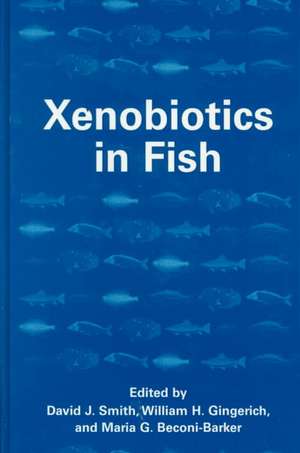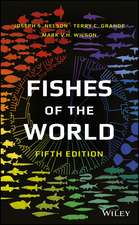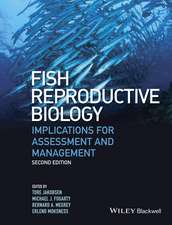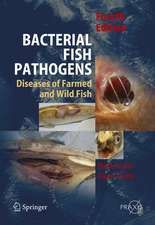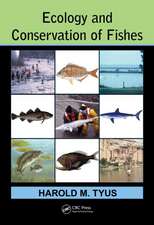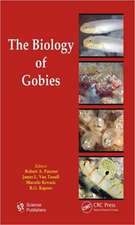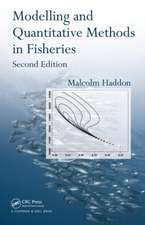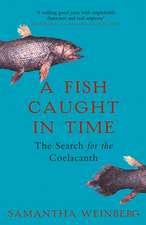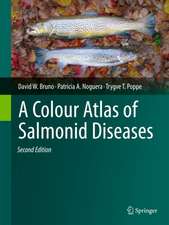Xenobiotics in Fish
Editat de D. J. Smith, William H. Gingerich, Maria G. Beconi-Barkeren Limba Engleză Hardback – 30 iul 1999
| Toate formatele și edițiile | Preț | Express |
|---|---|---|
| Paperback (1) | 944.51 lei 6-8 săpt. | |
| Springer Us – 16 oct 2012 | 944.51 lei 6-8 săpt. | |
| Hardback (1) | 951.77 lei 6-8 săpt. | |
| Springer Us – 30 iul 1999 | 951.77 lei 6-8 săpt. |
Preț: 951.77 lei
Preț vechi: 1160.70 lei
-18% Nou
Puncte Express: 1428
Preț estimativ în valută:
182.12€ • 190.66$ • 150.69£
182.12€ • 190.66$ • 150.69£
Carte tipărită la comandă
Livrare economică 05-19 aprilie
Preluare comenzi: 021 569.72.76
Specificații
ISBN-13: 9780306461897
ISBN-10: 0306461897
Pagini: 223
Ilustrații: VIII, 223 p.
Dimensiuni: 178 x 254 x 14 mm
Greutate: 0.63 kg
Ediția:1999
Editura: Springer Us
Colecția Springer
Locul publicării:New York, NY, United States
ISBN-10: 0306461897
Pagini: 223
Ilustrații: VIII, 223 p.
Dimensiuni: 178 x 254 x 14 mm
Greutate: 0.63 kg
Ediția:1999
Editura: Springer Us
Colecția Springer
Locul publicării:New York, NY, United States
Public țintă
ResearchDescriere
Aquaculture is rapidly becoming a major source of fish protein used to meet the nutritional needs of humans. As the aquaculture industry grows, exposure of farmed fish to environmental contaminants, and the need for chemical therapeutic agents for fish, will increase. This book is designed to bring together authorities worldwide on the regulation of environmental contaminants and food chemicals and researchers investigating the metabolism and disposition of foreign chemicals (xenobiotics) in fish species.
Cuprins
Introduction. 1. Use of Chemicals in Fish Management and Fish Culture: Past and Future; R.A. Schnick. 2. U.S. Food and Drug Administration's Perspective on Aquaculture Drug Residues; J.A. Oriani. 3. Requirements for the Approval of Veterinary Therapeutics or Growth Enhancers Used in Fish Production: European Union; D.J. Alderman. 4. Pesticide Bioaccumulation and Metabolism: Study Requirements, Experimental Design, and Data Analysis; M.G. Barron, K.B. Woodburn. 5. Considerations in Compartmental Pharmacokinetic Modeling in Fish; W.L. Hayton. 6. Pharmacokinetic Modeling in Aquatic Animals: Bioconcentration and Bioavailability; G.R. Stehly, et al. 7. Recent Advances in the Development and Use of Physiologically Based Toxicokinetic Models for Fish; J.W. Nichols. 8. A Physiologically Based Pharmocokinetic Model for Predicting the Withdrawal Period of Oxytetracycline in Cultured Chinook Salmon (Oncorhynchus tshawytscha); F.C.P. Law. 9. Comparative Pharmacokinetics of Sarafloxacin in Rainbow Trout and Channel Catfish; G.R. Stehly, et al. 10. Predicting the Toxicokinetics of Trifluralin in Rainbow Trout Using Clearance-Volume Pharmacokinetic Models; I.R. Schultz, W.L. Hayton. 11. Disposition and Metabolism of Malachite Green and Other Therapeutic Dyes in Fish; S.M. Plakas, et al. 12. Uptake, Metabolism, and Elimination of Niclosamide by Fish; V.K. Dawson, et al. 13. Uptake, Metabolism, and Elimination of TFM by Fish; T.D. Hubert, et al. 14. Metabolism, Elimination, and Pharmacokinetics of the Fish Anesthetic Benzocaine; J.R. Meinertz, et al. 15. Metabolism and Pharmacokinetics of Sulfamonomethoxine in Edible Fish Species; R. Ueno.
